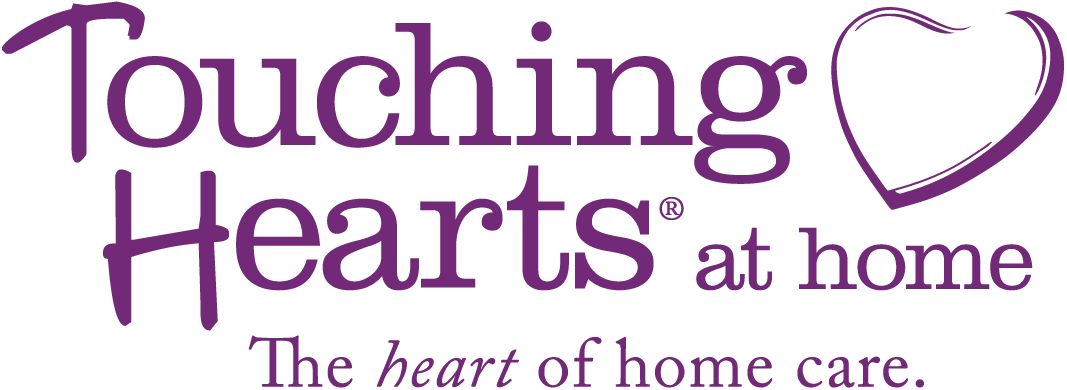Your ability to attract and retain top nursing professionals directly shapes patients' quality of care. While the […]
The annual turnover rate in the home caregiver profession is around 65%, and while the reasons for that figure are complex, burnout is a top cause. Agencies that hope to recruit and retain caregivers will need to understand the factors that contribute to caregiver burnout and look for ways to address them.
In this post, we’ll look at the signs of caregiver burnout and the main causes of burnout. Then we’ll share some tips on how to avoid caregiver burnout and the input we received from nine home care agency experts.
What is caregiver burnout?
Caregiver burnout is a state of physical or mental exhaustion resulting from job-related stress or excessive work. It’s a problem that seems to perpetuate itself in the caregiving profession — workers experiencing burnout leave their jobs, which in turn leaves agencies even more short-staffed, increasing individual workloads.
About 56% of professional caregivers work more than 40 hours per week, which is why caregiver fatigue is so common. In addition to long hours, challenges of the caregiving profession include low wages, a lack of benefits, and the isolation that comes with working independently. A combination of these and other factors leads to caregiver exhaustion, which is a predecessor of burnout.
Caregiver burnout signs
Burnout tends to develop gradually. Caregivers experiencing burnout may exhibit signs such as:
- Physical symptoms — Headaches, indigestion, and frequent illness are often associated with burnout.
- Withdrawal from work-related activities — Caregivers typically work independently, without much peer interaction. When they’re experiencing burnout, they may be less likely to communicate with office staff or seek support, even if they need it.
- Difficulty performing tasks — Poor work performance is one sign of burnout, but burnout can also affect one’s personal life. Employees who are experiencing burnout may have trouble following through with household responsibilities and personal care.
- Emotional exhaustion — In many ways, burnout can resemble depression. Caregiver burnout may cause hopelessness, irritability, and a loss of interest in usual activities or relationships.
With severe caregiver burnout, employees may become dangerously negligent in their work, raising the risk of harm for clients.
Main causes of caregiver burnout
Every person has unique responses to stressful situations, but in general, the following stressors are known to raise the risk of burnout:
Difficult working conditions
Home care work can be physically demanding, with unpredictable hours and a heightened risk of illness or injury. Many workers also feel significant pressure, as they may be the only caregiver for a client whose life literally depends on them being on time and providing proper care.
Caregiver-family relationships
Home care clients may live with family members who increase stressful working conditions. For example, family members may be critical of caregivers, ask questions that caregivers are not qualified or able to answer, or refuse to listen to caregivers’ advice.
Feeling isolated
Caregivers generally work alone, traveling between homes during working hours. That means they may have no connection to other agency employees, aside from their manager, and may experience feelings of isolation.
Lack of appreciation
Caregiving is an important job, but too often, caregivers receive little to no recognition for their efforts. Because agency managers don’t witness firsthand the work caregivers do, they might not realize when caregivers are “going above and beyond” in their work.
Low pay
The median annual income for home care workers is $24,000, and about one-quarter of professional home caregivers live in households that are below the federal poverty threshold. Financial difficulties can contribute to stress, in general, which may increase the likelihood of burnout.
Inadequate training
Because many agencies struggle with staffing levels, they may not have the time to conduct ongoing training. As a result, caregivers may have few opportunities for advancement and may be ill-prepared to handle new on-the-job challenges.
How home care agencies can reduce caregiver burnout
Before we dive into our experts’ detailed responses, we’ll share some of the general ways agencies can mitigate caregiver burnout:
Regular touchpoints
Checking in with caregivers regularly may help prevent burnout. One of the agency experts we spoke with mentioned using daily, weekly, and monthly touchpoints to convey that the agency will “always have their back.”
Open communication channels
One agency leader said that their agency provides a dedicated phone line caregivers can call for support and advice. In addition to checking in with caregivers, some agencies offer additional support, such as the services of a chaplain who is available to listen when caregivers need to talk.
“I feel this has proven to be a valuable service to our caregivers; to listen, encourage and support, so that they can fulfill their calling.” — Marian McGunagle, Caregiver Trainer & Volunteer Chaplain, Visiting Angels Caregiver Training Center
Support resources
One professional said her agency provides support through an organization called Life Matters, which provides free counseling for post-traumatic stress disorder, mental health issues, and substance abuse.
“This is confidential information, which hopefully promotes a feeling of a safe place by those who seek their help.” — Gloreen M. Heft, BS-HCA, LPN, Behavioral Health-Nursing Support, Integrity Residential Services
Flexible scheduling
One agency expert said that accommodating caregivers’ schedules is a strategy they use to minimize burnout and alleviate the stress that comes with managing other obligations.
“For example, if they have school age children, we will start their schedule at 8 and have them off by 3 if they have to drop off and pick up children at school.” — Kathy Frames, Home Care Manager, East Ark Area Agency on Aging
Client rotations
Because routine and monotony could contribute to caregiver burnout, some agencies rotate caregivers between homes as much as possible. One agency professional said that if caregivers are “experiencing a hard time” with a given client, management looks for opportunities to move that caregiver to a different home, or at least provide them with an extended break.
Positive feedback and recognition
Two agency leaders said their organizations offer recognition or kudos for caregivers whose work is exemplary. One agency awards additional time off to caregivers who earn the employee of the month award.
Paid sick leave for mental health days
Recognizing that caregiving can be stressful work, some agencies encourage workers to use their paid time off for mental health days.
Competitive pay and benefits
One agency mentioned providing hiring bonuses, as well as a company-wide bonus in acknowledgment of the staff’s dedication through the COVID pandemic.
Ongoing training
Regular training is beneficial for both caregivers and their employers — it helps caregivers grow their skills and potentially advance their careers, and it helps agencies ensure they’re offering the highest quality of care.
Agencies that don’t have the staff or resources to offer training may choose to partner with an organization like CareAcademy, which provides a variety of online training for home caregivers and agencies. CareAcademy courses include compliance-specific topics, training on emerging issues in home care, and administrative training for agency leaders.
What the experts said
Now it’s time to hear from our experts. Read what they said about caregiver burnout.
Tauseef Riaz
Kathy Clinton
Laraye Cooksey
John Sammons
Kenneth Helmuth
Julia Bidgood
Kathy Frames
Gloreen M. Heft, BS-HCA,LPN
Marian McGunagle
Reduce caregiver burnout
Burnout doesn’t have to be part of the caregiver experience. With competitive pay and bonuses, the right support, and ongoing training, the caregiver occupation can be a rewarding long-term career.
Find out how CareAcademy has helped agencies throughout the United States create a better working environment for their employees. Sign up for your free trial today!






